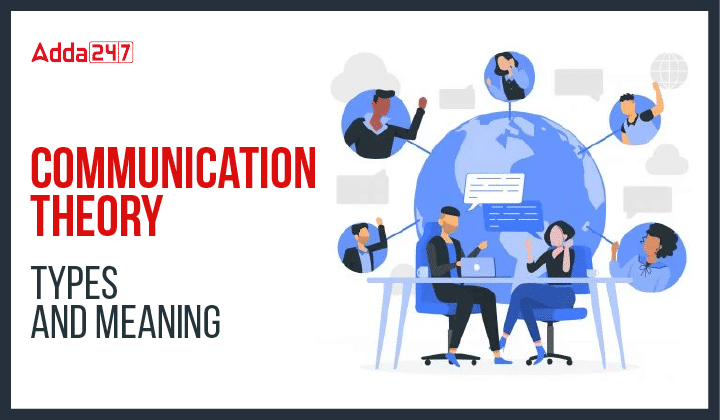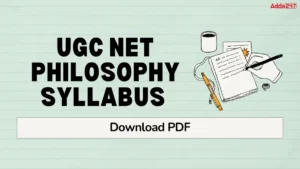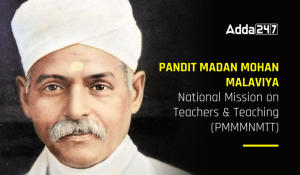Table of Contents
Communication theories are frameworks or models that attempt to explain and predict how communication works and the factors that influence it. These theories provide a way to understand communication processes and help to explain why people communicate the way they do.
UGC NET Study Notes for Paper 1
Meaning of Communication Theory
Communication theories can be descriptive, prescriptive, or both. Descriptive theories attempt to explain communication as it actually occurs, while prescriptive theories offer guidelines for effective communication. Some communication theories also seek to address the ethical implications of communication, particularly in situations where power dynamics are at play.
Models of Teaching – Meaning and Types
Types Of Communication Theory
There are many different communication theories, and each theory has its own unique perspective and approach to understanding communication. Some of the most prominent communication theories, organized by category are as follows:
 Behavioral Communication Theories
Behavioral Communication Theories
Behavioral Communication Theory is a communication theory that focuses on the observable behaviours that occur during communication. This theory emphasizes that communication is not just about what is said, but also about the behaviors that accompany the message.
According to this theory, communication is most effective when the behaviours used by the sender are clear, direct, and consistent with the message being conveyed. Conversely, ineffective communication can result from behaviours that are ambiguous, contradictory, or not aligned with the intended message.
The two most prominent behavioural communication theories are:
- Social Learning Theory
- Social Exchange Theory
Cognitive Communication Theories
Cognitive Communication Theory is a communication theory that emphasizes the role of mental processes in communication. This theory posits that communication is a cognitive activity that involves the interpretation and processing of information.
According to this theory, communication involves three mental processes:
- Attention
- Comprehension
- Memory
Attention refers to the ability to focus on and attend to the communication message. Comprehension involves understanding the meaning of the message and making sense of it. Memory refers to the ability to store and recall information from the message.
The two most prominent cognitive communication theories are:
- Cognitive Dissonance Theory
- Expectancy violations theory
Cultural Communication Theories
Cultural Communication Theory is a communication theory that emphasizes the role of culture in communication. This theory posits that communication is influenced by cultural norms, values, beliefs, and practices, and that culture plays a significant role in shaping communication patterns and styles.
According to this theory, culture shapes the way individuals encode and decode messages, as well as the ways in which they interpret and respond to communication cues. Different cultural groups may have different communication styles, which can lead to misunderstandings and conflicts between individuals from different cultures.
The two most prominent cultural communication theories are:
- Cultural Studies Theory
- Communication Accommodation Theory
Critical Communication Theories
Critical Communication Theories are a group of communication theories that challenge dominant power structures and social inequalities. These theories aim to expose and critique the ways in which communication is used to maintain and reinforce social, economic, and political power.
One key aspect of Critical Communication Theories is their focus on the relationship between power and communication. These theories emphasize that communication is not neutral, but is shaped by power dynamics and social hierarchies.
The two most prominent critical communication theories are:
- Feminist Theory
- Critical Race Theory
Individual difference theory
According to this theory, different personality variables resh in different reactions to the same stimuli. In other words, an individual’s psychological mechanism accounts for his reactions to media messages. In other words, the reaction to media content differs according to the motivation of audience members, their predisposition to accept or reject a given message, their intelligence, beliefs, opinions, values, needs, moods, prejudices, perceptibility, etc.
- Selective exposure
- Selective perception
Personal influence theory
The findings revealed that no voters normally are directly influenced by mass media. It turned out that interpersonal relationships had more influence than mass media.
- Two-step Flow
- Multi-step flow
Overall, communication theories are important tools for understanding and improving communication. They provide a framework for analyzing communication situations, identifying communication barriers, and developing effective communication strategies. By studying communication theories, researchers and practitioners can gain a deeper understanding of the complex nature of communication and work towards creating more effective and equitable communication practices.
Download Communication Theories Notes PDF
| UGC NET Important Links | |
| UGC NET 2023 Notification | UGC NET New Syllabus |
| UGC NET Previous Year Papers | UGC NET Teacher Salary |




 UGC NET Commerce Syllabus 2025 PDF Downl...
UGC NET Commerce Syllabus 2025 PDF Downl...
 UGC NET Philosophy Syllabus 2025 PDF Dow...
UGC NET Philosophy Syllabus 2025 PDF Dow...
 PMMMNMTT for NEP 2020, Check details Her...
PMMMNMTT for NEP 2020, Check details Her...














